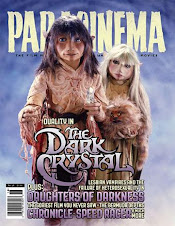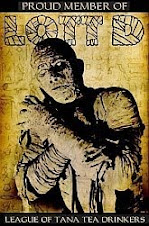Season 3, Episode 3: Shut Up & Dance
When I put together my incredibly non-definitive ranking of Black Mirror episodes, Shut Up and Dance came up dead last. I clearly had STRONG feeling on season 3's meanest entry, but I was curious to see if time would be kinder to it.
The Talent: Shut Up and Dance is written by Black Mirror creator Charlie Brooker and Will Bridges, the same team who would pen Season 6's celebrated USS Callister. Director James Watkins comes with some good modern horror pedigree, having made the strong (if, whaddya know, mean) Eden Lake and the much kinder, effectively spooky The Woman In Black.
The Setup: Kenny seems like your average British teenager, working in a fast food joint and constantly battling her bratty sister for his laptop so he can lock his door and masturbate in peace. After cleaning his computer with the first antivirus software that comes up in the search results, Kenny discovers he's provided full camera access to a mysterious all-knowing entity that is now threatening to release the video to his entire contacts list.
Most teenage boys would be scared, but Kenny is absolutely terrified and immediately agrees to to carry out his blackmailers' demands. The tasks seem easy enough at first: pick up a cake, work with a fellow blackmailee (Game of Thrones' Jerome Flynn) to rob a bank and, well, things escalate.
The Ending: After being forced to fight another man to the death, Kenny assumes he's free as initially promised. Broken and carrying a bag of stolen cash, he begins stumbling home only for his mother to call in tears. A montage shows our other shamed men and women discovering the secrets they fought so hard to hide have been released upon the world.
Kenny, you see, wasn't just jerking off to common porn. While we (thankfully) don't get the details, his mother's cries of "kids!" is enough, especially when we think back to the small moment he shared with a little girl earlier in the episode. What seemed like a quick shot to lend our protagonist charm is reframed as something menacing and awful.
The Theme: But see, here's why I hated Shut Up and Dance so much upon my first viewing: what's the point? People have done terrible things ranging in their measure of sin. Jerome Flynn sought out a prostitute, something hardly worth true damnation (though I like to think it was the detail that he was trying to haggle on the pricing that put him on the list). Nobody should be sad that a CEO's racist emails are leaked, and Kenny's proclivities would probably have led to the abuse of a minor, but seeing these characters put through a marathon of high anxiety tasks is just, well, unpleasant.
I suppose Brooker and Bridges' moral is that what's done is done. No amount of bicycling or sponge cake can erase your sins, and if you put any of your worst instincts out into the digital world, they will indeed come back to haunt you.
The Verdict: Shut Up and Dance is not a bad episode of television. It's incredibly well-acted, and busting with tension that director Watkins somehow amplifies when he brings in comedy. On second viewing, I can be a little less mad at the rug pull reveal. Yes, it still feels like a cruel trick to pull on its audience, but I can admire how well it plays its hand.
Technology Tip
Don't ever use the internet in any way shape or form to do anything that you wouldn't feel comfortable being shown to everyone you know. Easy, right?
The Black Mirror Grade
Cruelty Scale: 10/10
Quality Scale: 7/10
Enjoyment Scale: 3/10



























































